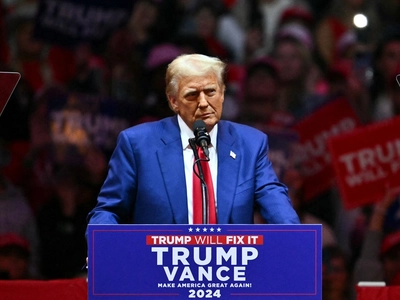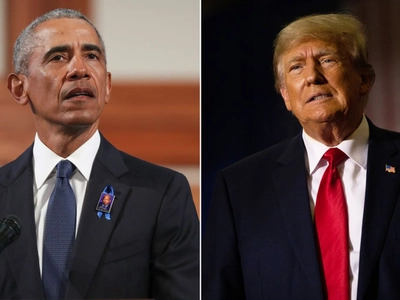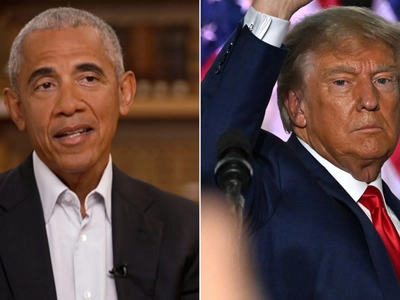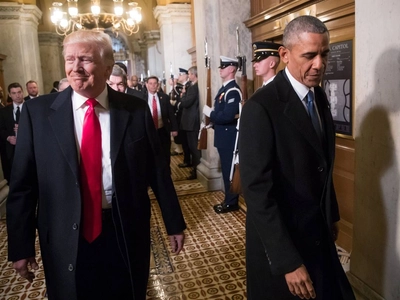Is Barack Obama a Traitor? Inside the Secret Conversations of Trump 2020 Voters
The hidden conversations of Trump's 2020 voter base reveal a psychological landscape far more complex than mainstream media dared to acknowledge. Through leaked SMS chains, private social media groups, and encrypted messaging platforms, a disturbing pattern emerges—one that exposes not just political allegiance, but the raw emotional machinery driving millions of Americans toward increasingly extreme conclusions.
The Digital Underground of Political Rage
Behind the public rallies and Twitter storms, Trump supporters built an intricate network of private communications that functioned as echo chambers of escalating fury. Text message threads that began with simple election skepticism evolved into sprawling conspiracy theories that questioned the fundamental legitimacy of American institutions.
What's most striking isn't the content itself—it's the psychological progression. Messages analyzed from various leaked communications show a consistent pattern: initial doubt, followed by anger, then a desperate search for someone to blame. And increasingly, that blame settled on familiar targets.
"Is Barack Obama a traitor?" This question, posed in countless variations across private Trump supporter networks, wasn't just political rhetoric—it was a psychological pressure valve. When traditional explanations failed to satisfy their worldview, supporters didn't abandon their beliefs. Instead, they expanded them.
The Anatomy of Escalation
The leaked communications reveal how ordinary political disagreement transformed into something far darker. In group chats with names like "Patriots United" and "Real Americans," supporters shared increasingly inflammatory content. What started as frustration with election results quickly metastasized into broad accusations of treason against Democratic leaders.
The progression follows a predictable pattern:
- Stage 1: "Something doesn't feel right about this election"
- Stage 2: "They're hiding something from us"
- Stage 3: "This goes deeper than we thought"
- Stage 4: "They've been planning this for years"
- Stage 5: "They're enemies of America"
By the time supporters reached stage five, former presidents weren't just political opponents—they were "traitors" worthy of the harshest punishment.
The Obama Obsession: More Than Politics
Analysis of private Trump supporter communications reveals an obsession with Barack Obama that transcends typical political opposition. In thousands of messages, Obama appears not as a former president with different policies, but as the architect of a vast conspiracy against "real Americans."
This fixation serves multiple psychological functions. Obama represents everything Trump supporters feel they've lost: cultural influence, demographic dominance, and the comfort of familiar social hierarchies. Labeling him a "traitor" allows supporters to externalize their anxiety and frustration onto a single, identifiable target.
The pattern is consistent across different communication platforms. Whether on Telegram, Signal, or traditional SMS, the sentiment remains the same: Obama didn't just disagree with their vision of America—he actively worked to destroy it.
The Psychology of Betrayal
The "traitor" narrative serves a crucial psychological purpose for Trump supporters. It transforms political defeat into moral victory. If Obama and other Democratic leaders are traitors, then supporting Trump becomes an act of patriotism rather than partisan politics.
This framing also explains the intensity of emotion in these private messages. Supporters aren't just angry about policy differences—they believe they're fighting for the soul of America against internal enemies.
The leaked communications show supporters reinforcing each other's most extreme interpretations. In these closed networks, questioning the "traitor" narrative becomes a form of disloyalty. Doubt is discouraged; escalation is rewarded with validation and group acceptance.
The Dangerous Evolution of Private Discourse
What makes these communication patterns particularly concerning is their evolution over time. Early messages focus on specific grievances: election procedures, media bias, political corruption. But as supporters become more isolated in their echo chambers, the accusations become broader and more existential.
By late 2020 and early 2021, private Trump supporter communications began treating political opposition as literal warfare. Democratic leaders weren't just wrong—they were enemies engaged in active combat against America itself.
This shift in language reflects a dangerous psychological transformation. When political opponents become "traitors," normal democratic processes become meaningless. Why vote when you're fighting a war? Why follow laws written by enemies?
The Amplification Effect
The private nature of these communications created an amplification effect that traditional polling and public statements missed entirely. Supporters felt free to express their most extreme thoughts without social consequences, leading to a spiral of mutual radicalization.
In public, supporters might express "concerns" about Obama's policies. In private, they called him a traitor who should face military tribunals. This disconnect between public and private discourse made the intensity of supporter commitment invisible to mainstream political observers.
The leaked messages reveal supporters weren't just reluctantly backing Trump—they were psychologically invested in a narrative that cast their political opponents as existential threats to America itself.
The Uncomfortable Truth About American Political Psychology
The private communications of Trump's 2020 supporters expose an uncomfortable truth about American political psychology: millions of citizens have moved beyond traditional democratic disagreement into something resembling wartime thinking.
When supporters ask "Is Barack Obama a traitor?" in their private messages, they're not seeking information—they're seeking validation for conclusions they've already reached. The question itself assumes Obama's guilt; it only debates the appropriate response.
This psychological framework explains why traditional political appeals failed to reach Trump supporters. They weren't operating within normal political parameters. In their minds, they were already at war.
Beyond the Echo Chamber
The analysis of Trump supporter communications reveals a political movement that has psychologically divorced itself from traditional American democratic norms. In their private spaces, supporters created an alternative reality where political opposition equals treason, where former presidents are enemy agents, and where their own defeat can only be explained by vast conspiracies.
This isn't just about one election or one candidate. It's about a fundamental shift in how millions of Americans understand the nature of political disagreement itself. When your opponents aren't just wrong—they're traitors—democracy becomes impossible.
The question "Is Barack Obama a traitor?" reveals more about the questioner than the subject. It exposes a political psychology that has abandoned the possibility of legitimate opposition, replacing it with existential warfare against internal enemies.
And that transformation, captured in thousands of private messages between ordinary Americans, represents one of the most significant threats to American democratic institutions in modern history.




